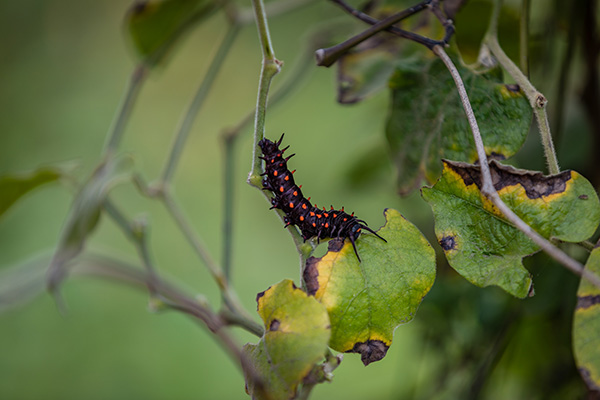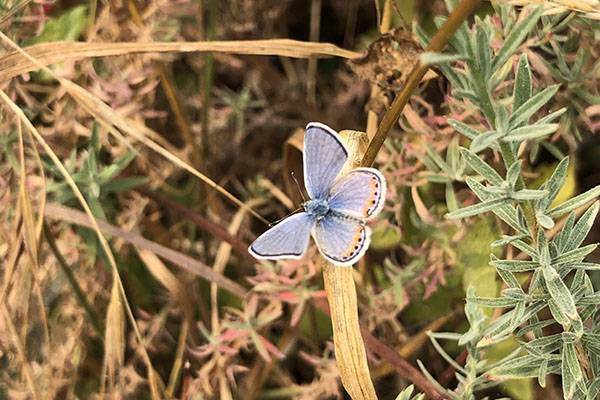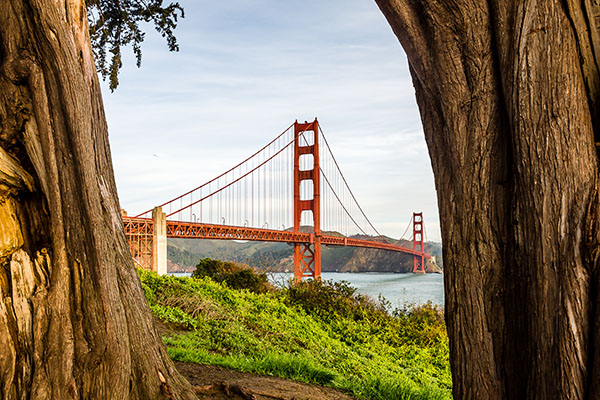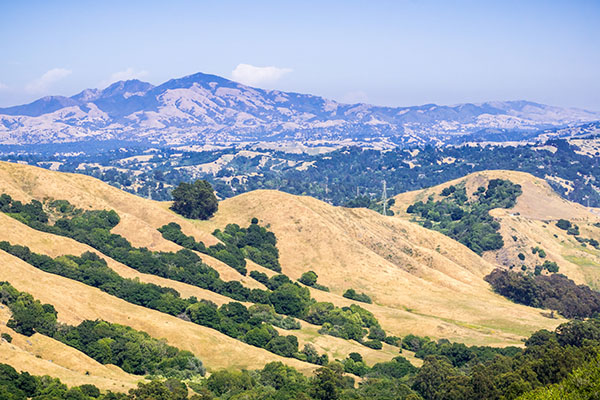Butterfly Gardening in the East Bay
There are many types of butterflies and closely related insects. In fact, about seven percent of all life forms on Earth are members of the Order Lepidoptera, including butterflies, skippers and moths.
Of the thousands of butterfly species worldwide, the East Bay (Alameda and Contra Costa counties) hosts about 100 species. Most of these are regular visitors, although a few are associated with unique conditions of soil and water, and almost all require a few simple things:
- Larval host plants
- Adult food supply
- Pupation sites
- Mating territories
Butterflies are relatively short-lived, varying from weeks to months in our temperate climate zone and their lifecycle from egg to adult allows only one or two generations per year, depending on the species. Most are visitors passing through our area, not permanent residents of our gardens. So, our challenge is to make them welcome guests!
Read on to learn how you can design a native garden that is a haven for butterflies.
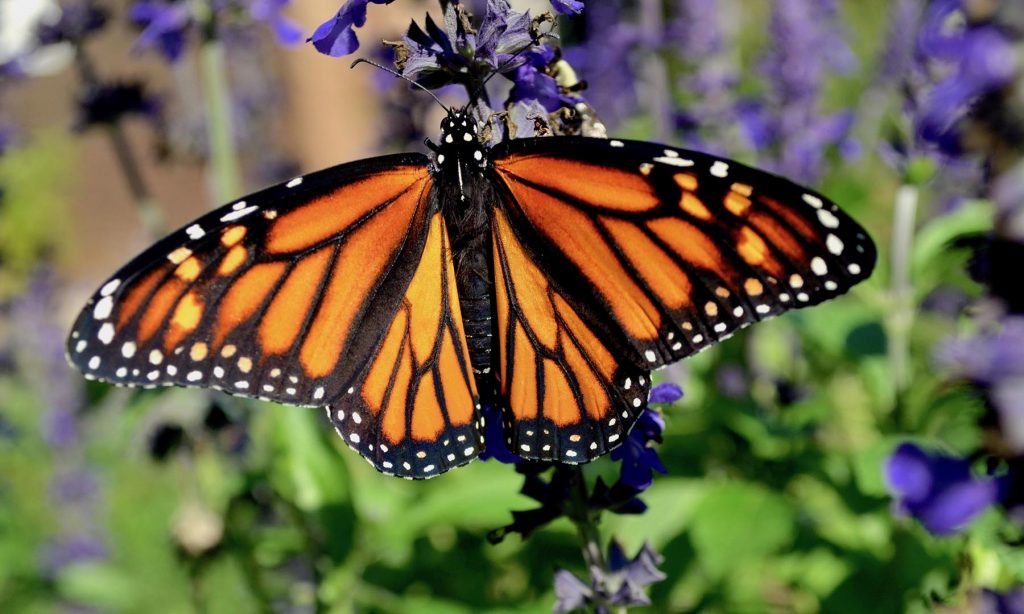
Did you know?
A fabled migrator, the Monarch Butterfly travels back and forth from Mexico to the West Coast, taking several generations of individuals to complete the route.
Who are our local butterflies in the East Bay?
This selection of butterflies provides a nice range from which to begin to plan your garden design, but these are just a few of the over thirty East Bay regulars; however, you may find it easier to begin with just one or a few butterfly species for your garden and then later add different plants to broaden your garden’s appeal to desired butterflies.
As you begin your butterfly gardening adventure, depending on sun and shelter conditions of your chosen space, likely visitors might include members from the following butterfly families:
Signature species include the Monarch, Mylitta Crescent, Painted Lady and West Coast Lady.
Noted butterflies include the Gray Hairstreak, Western Pygmy-Blue and Acmon Blue.
Noted locals include the Cabbage White and Orange Sulphur.
The Western Swallowtail and Pipevine Swallowtail are very distinctive and colorful.
The Fiery Skipper is a distinctive local.
Browse our butterfly and plant lists
Browse our comprehensive list of butterflies of the San Francisco Bay Area and the native plants that attract them.
Browse our list of butterflies of the East Bay (Alameda and Contra Costa Counties) and the native plants that attract them.
Browse our list of butterflies of Mount Diablo and the native plants that attract them.
Butterfly gardening basics
Butterflies need just a few basics from your garden in order to prosper. Include some of these in your garden and you will be on your way to creating a haven for butterflies.

Sunlight
At least half a day of good sunlight is important, since butterflies’ muscles won’t support flight if they are cold.
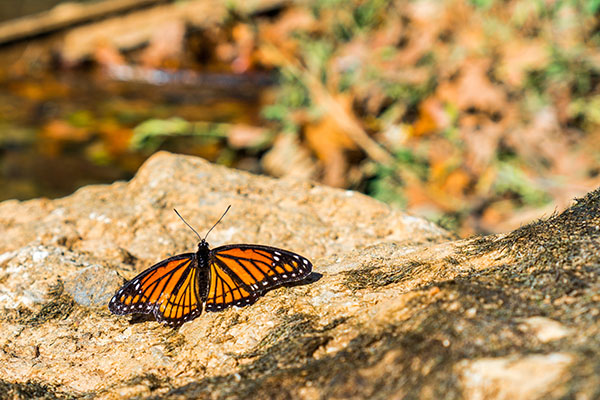
Rest
A few places to land and rest in the sun are desirable, such as several flat rocks or a ledge.

Water
A place to drink is a must, and can be provided by having a few puddles or small pools, preferably in a warm spot.
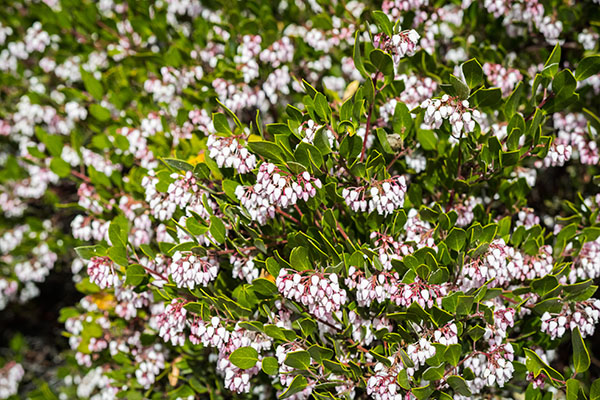
Windbreak
Provide some type of windbreak, usually a screen of larger plants will do.
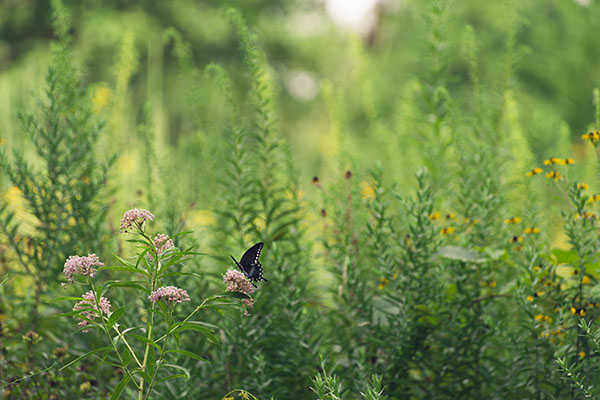
Nectar and food
A variety of plants to provide both nectar for butterflies as well as food for caterpillars.
Getting started with butterfly gardening
Attracting butterflies means serving their needs at each stage of their lifecycle, so think about providing green plants as places to lay eggs, food plants for the caterpillars (larvae), plants and places to form the chrysalides, and nectar plants for the adults. This sounds like a lot, but it can be accomplished with some good planning.
Top tips on planning your native butterfly garden:
- Start with local native plants because most butterflies and native flowering plants have evolved together and actually depend on each other for survival. You can use our butterfly and plant lists to select plants specific to your region.
- Give your butterflies a good chance to find your flowers by planting them in clusters.
- Select plants whose flowers will show red, yellow, orange, pink and purple. Color is important because butterflies and bees see color in the ultraviolet range and the petals of flowers have ultraviolet patterns that will guide them to their favorite flower.
- Select a variety of plants to provide a continuous bloom range through the adult cycle of their lives.
